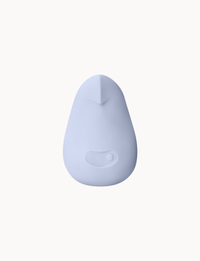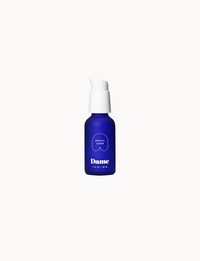New relationships are chock-full of navigating uncharted terrain. How will this person respond to conflict? Will they get along with friends and family? Do we communicate well? It’s also full of exciting new firsts, like dates, conversations that fuel a closer connection, first kisses and other forms of intimacy. While all the firsts can be thrilling, bringing up a cancer diagnosis in a new relationship can feel like the last first you want to experience.
Dr. Martha Tara Lee, relationship counselor, clinical sexologist, and resident sexologist of Singapore Cancer Society explained, “The person disclosing a cancer diagnosis in a new relationship may experience a range of emotions, including fear, anxiety, confusion, embarrassment, sadness, and guilt.”
Disclosing a diagnosis can also bring up the fear of potential implications it might have on the relationship, Lee added. “Additionally, they may feel vulnerable and exposed as they share such personal and sensitive information with someone they are just getting to know,” Lee said.
Consider the Time, Place, and Person
How do you know when it’s the right time to disclose a cancer diagnosis? While you don’t want to wait too long, you also might not feel ready with first-date jitters, which is perfectly acceptable. “When disclosing a cancer diagnosis in a new relationship, it’s important to choose a time and place that is comfortable for both of you,” Lee said.
Lee said that sooner than later is the best course for bringing up a diagnosis. “This will help to ensure that both partners feel comfortable talking about it and can make sure that any potential issues are addressed before they become a problem,” Lee said.
Ultimately, prioritizing your comfort when disclosing a diagnosis is vital. You can decide if having the conversation in person or on the phone is best for you. Choosing who to tell is essential, too. If it’s someone you think you might want a deeper relationship with, feel comfortable with, and so far they are trustworthy, these might be good indicators that it’s someone worth telling.
Disclosing Your Diagnosis
Being honest about your diagnosis and treatments is a good starting point. It can be helpful to prepare yourself for questions someone will have, and it may help you to write down your points beforehand. You’ll likely have various thoughts and feelings that arise during disclosure. You might want to consider a partner’s role in your treatment; they will likely be curious about this question. As the relationship is new, you won’t have all the answers, and that’s okay.
Reassurance can be a valuable part of this conversation. You might not know your outcome or how treatment will impact you, but stick to what you can reassure someone. “Let your partner know you are still the same person, even with a cancer diagnosis. Reassure them that you are still capable of having a healthy, happy relationship,” Lee said.
It makes sense that a cancer diagnosis could strain a new relationship, and there could be unknowns or stress about how someone’s diagnosis might impact the relationship or partners involved. Resources and professional help, such as seeing a couple’s counselor or attending individual therapy, can be helpful.
During and after disclosure, the partner receiving the information may be surprised, which is to be expected, Lee explained. They might be shocked, confused, or sad. It’s important to let them process. Ultimately, their reaction will be supportive and empathetic or sound the alarms.
Lee said that some green flags after disclosure include responding with “compassion, understanding, and a willingness to provide support. These reactions indicate that the partner is taking the diagnosis seriously and is willing to provide emotional and practical support,” Lee said. Lee added, “red flags would be a partner who responds with anger, blame, or denial.”
You can decide when your bandwidth is depleted from the conversation. It’s okay to tell the person receiving the information that you’d like to continue talking another time or in a different method, such as a phone call if you’re in person.
Self-Care After Disclosing a Diagnosis
It can be helpful to develop a self-care plan after the conversation. Consider what you might need ahead of time, whether to be alone, order delivery, or process with a friend. Lee said that other self-care plans for after the conversation can include doing any activity that brings you joy, staying active, eating nutrient-dense foods, and prioritizing sleep.
If you happen to face rejection from a partner, Lee said, “remember that it's not a reflection of your worth or your value as a person.” You deserve love and acceptance, and there are people who will embrace you exactly as you are. After experiencing rejection, try not to ward off dating for good, even though you might need to take a break and process.
Your Relationship After Disclosure
After you disclose your diagnosis, your relationship will likely shift to accommodate the news. Sometimes, people experience a strengthening of bonds in their relationships due to the vulnerability of sharing a significant experience. If this isn’t the case, you can learn more about your needs from a future partner or ways you would ideally like a partner to show up during cancer disclosure or future treatment.
Specific types of cancer treatments can impact libido. After the initial conversation, you might want to consider the needs and preferences of your and your partner’s sex life. “This includes talking about any potential physical limitations or changes that may have occurred due to cancer treatment, as well as any emotional or psychological needs that you may have,” Lee said.
While treatment may impact desire, there are many ways to be intimate with a partner, even if intercourse is not an option, Lee explained. “Talk to your partner about different options such as outer play, sex toys, or lube that can help make intimacy enjoyable for both of you,” Lee said.
If your relationship with sexuality changes throughout cancer, know this is normal. Lee explained that it also might be worth seeing a sexologist if intimacy feels trying; a sexologist can suggest how you might engage with your new sexuality.
Dating is already tough to navigate. Sharing your cancer diagnosis in a new relationship can feel pretty scary; disclosing can help show you the people who accept you where you’re at.




















































